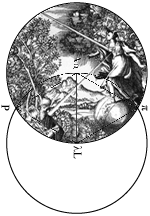Crisis. Journal of Architectural Education, Ed. Timothy Hyde. Vol. 69 No. 1, Taylor and Francis, March 2015.Is it even possible to offer a description of our contemporary moment that is not fundamentally defined by the experience of crisis? Financial crisis, environmental crisis, urban crisis—these are now inescapable markers that direct thoughts and speculations about late modernity, its past and its future. Indeed the present confluence of crises, both acute and chronic, is felt to be so encompassing as to perhaps signal an epochal shift, with the epoch whose demise seems to be presaged that of modernity itself. The theme proposed for JAE 68:2 is Crisis, with the aim of assembling a collection of research, propositions, and opinions that illuminate in new ways the relation between architecture, modernity, and crisis. For if crisis is indeed the consummate experience of modernity, then design, as an anticipatory discipline, is surely implicated. At a moment when the experience of crisis is felt to be fully enclosing, when to be modern is to be not just ‘in crisis’ but inside crisis, what is the nature of design practices? What are the obligations and opportunities, the possibilities and impossibilities that confront the architect, the landscape architect, the urban designer? What, finally, is the value of aesthetic modes of experience in historical situations that are, like the present, enclosed by crisis? This themed issue will pursue questions such as these by soliciting contributions that interrogate the relationship between crisis and architecture at the present moment as well as in prior historical events and objects. Contributions in the category of Design as Scholarship might address diverse manifestations of crisis—urban, financial, environmental, etc.—through the elucidation or demonstration of links between design practices and causes and consequences of such crises. Contributions in the category of Scholarship of Design might reveal different historical attitudes and exigencies of crisis through the examination of architects, practices, or events in contexts such as political revolutions, or economic contractions, or extreme climates. Opinion essays could address key theoretical aspects—such as scarcity, resilience, or decision making—that might define different conceptualizations of crisis. The emphasis of the themed issue would less the mitigation or solution of crises, but rather the contextualization of crisis itself in relation to design practice. To this end, the preference would be for contributions that historicize crisis (in Scholarship of Design) and those that interrogate crisis (in Design as Scholarship). Together with Opinion essays, such contributions could elaborate Crisis as a motivation, a means of judgment, a temporality, in short, a medium for architecture. |
